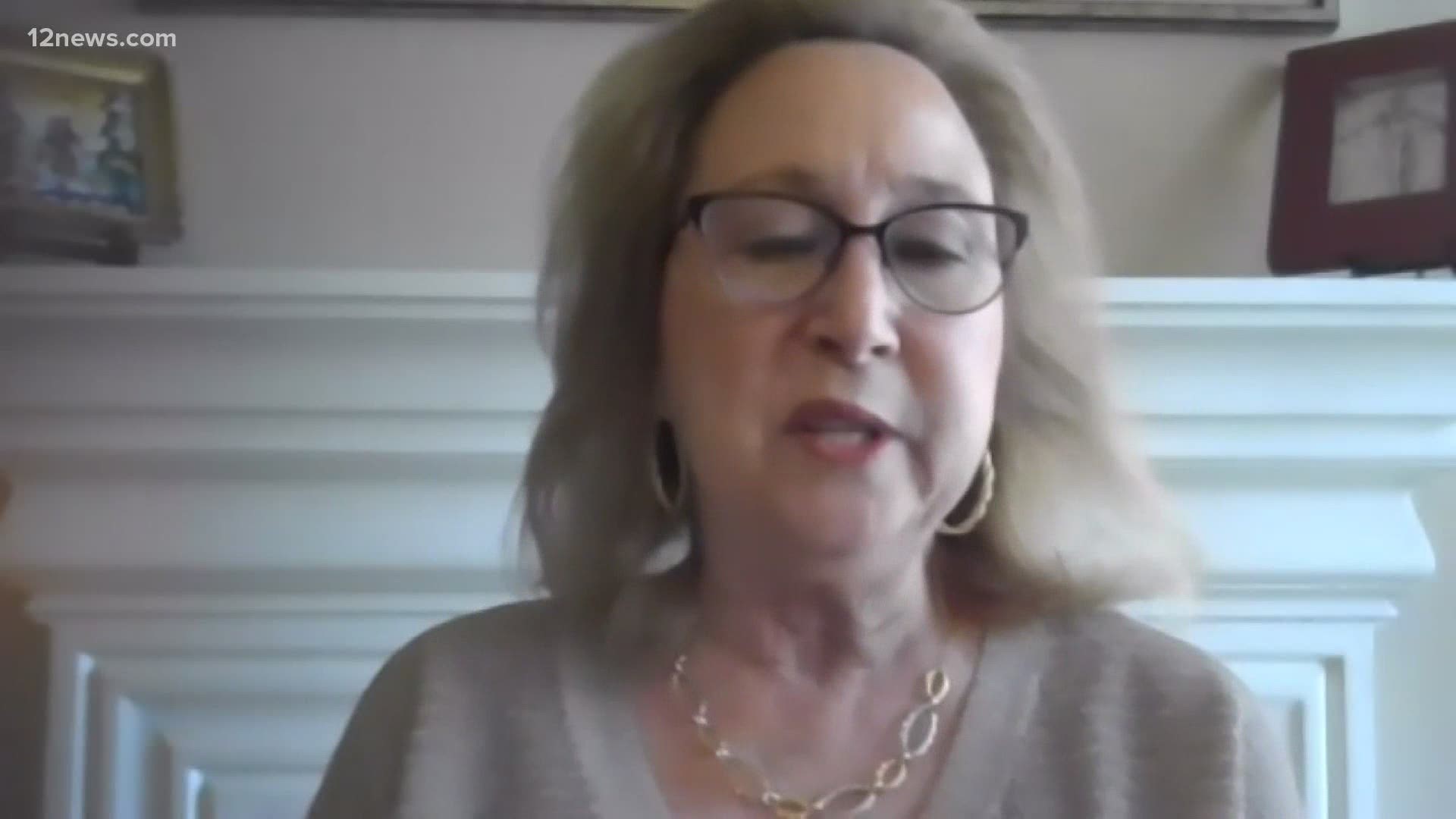PHOENIX — Lisa Shacket said she needed to do it.
Despite the Arizona Democratic Party urging members not to participate in state Senate Republicans' audit of the 2020 presidential vote, Shacket went ahead and volunteered to find out what would happen to her ballot.
She did a two-day stint -- Monday and Tuesday -- as an audit observer at Veterans Memorial Coliseum.
"Both days I was there, I left horrified," Shacket, a Phoenix resident, said in an interview Wednesday.
Shacket is an active registered Democrat with a background in community and legislative work.
She signed up as an Arizona audit observer after providing three reference letters.
Her takeaways as a volunteer reflect the larger issues raised in an ongoing lawsuit: The audit has not publicly disclosed its policies and procedures, and might be doing some corner cutting.
"When I got there the first day, I was literally told, 'Talk to the observers and they'll answer your questions,'" she said.
Shacket said she and her fellow observers - they're the ones in the orange T-shirts - received no training in how the audit process was supposed to work.
Observers aren't allowed to talk to the green-clad ballot-counters, so Shacket listened.
"What I heard those table monitors say several times was, 'Speed is more important than accuracy,'" she said.
On Tuesday, her second day as an observer, the lawyer for the audit leader, a Florida-based company called Cyber Ninjas, was telling a judge about the "monumental race against time" to hand count all 2.1 million general election ballots in Maricopa County.
As of Tuesday, the audit had hand counted "just shy of 100,000 ballots," according to Senate audit liaison Ken Bennett, a former Arizona secretary of state.
Accepting that number at face value, the audit would have to triple its speed to finish the hand count by May 14, the day it must vacate the coliseum.
Shacket said she also saw audit procedures change from day to day.
"That is why I'm concerned about this," she said. "If it's a true audit, the procedure is the same from beginning to end."
For example, it's still not clear to her whether ballot counters were counting the 2020 U.S. Senate race, as well as the presidential race.
They were doing both, she said, then they focused on the presidential race.
The audit grew out of Republican lawmakers' drive to overturn the 2020 presidential election results in Arizona.
After more than two dozen Republican lawsuits failed, Senate Republicans successfully subpoenaed Maricopa County's ballots and ballot-counting machines for an outside audit. Senate leaders said they were responding to "thousands of questions" about the election from constituents.
President Donald Trump was just the second Republican to lose the state in 24 years, and the first to go down to defeat in Maricopa County, the state's largest county, in 72 years.
The election results and accuracy of the ballot-counting machines have been affirmed by Maricopa County internal and external audits.
Fund-raising for the audit and the audit itself are led by individuals who have promoted the falsehood that the election was stolen from Trump.
A judge's ruling Wednesday could reveal the audit's procedures for handling your ballot.
Maricopa County Superior Court Judge Daniel Martin rejected audit leader Cyber Ninjas' request to keep its procedures a secret. Documents explaining those procedures could be made public as soon as noon Thursday.
Senate Republicans' audit liaison Ken Bennett responded to Lisa Shacket's three main observations:
"#1 Exactly opposite - I have personally heard the CEO of Wake TSI (doing the counting) tell counters that accuracy is more important than speed. (if they don't match accurately, they have to re-do).
"#2- Yes, procedures can (and should) change every day as improvements are identified. Again, I have personally been in team leader meetings late in the evening when team leaders share ideas to make improvements. Most are small incremental changes but some are significant (like removing the video monitors and just looking at the ballots).
"#3 - There is a 5-10 minute briefing for observers. I've conducted several myself. It's mostly common sense things - observe, don't distract or talk with workers, who to bring concerns to, be quiet, remain outside the marked working boxes, don't congregate, etc."
Want to see more news surrounding the Arizona Senate GOP's audit of the 2020 election? Watch our 12 News YouTube Playlist here.

